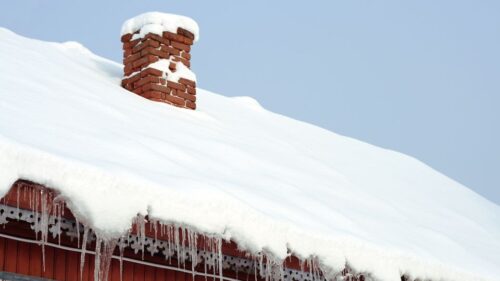“WOTUS!” You might be asking, “Wait, do you kiss your mom with that mouth?!” Just kidding… it’s not a swear word per se, unless you’re a landowner, farmer, rancher, or anyone subject to the Clean Water Act’s (CWA’s) recent rule defining the “Waters of the United States.”
Before I go any further with this blog, let me be honest. This was a tough one for me to write. Not because I’m having writer’s block (though, it happens to the best of us), but because it’s about a regulation. If you know anything about regulations, you know you have to read them 2-3 times before you can understand what’s actually happening. I’ll do my best to simplify, but if by the end you need my help to understand, reach out to me and we can try and get through this together. OK…here goes.
“Waters of the United States,” affectionately known as WOTUS, are protected by the CWA. The CWA uses WOTUS to define its scope and therefore its governmental regulation of WOTUS. So why is WOTUS a swear word? Well, because the definition of WOTUS has been a moving target.
In the early 2000s, two Supreme Court cases generated confusion regarding the meaning of WOTUS. The Obama administration proposed to clarify the definition in 2014, but the proposed rule died in the Senate. However, on June 29, 2015, several agencies, including the Environmental Protection Agency (EPA), published the Clean Water Rule (“Rule”). This rule took effect on August 28, 2015, and clarified the definition of WOTUS as used in the Clean Water Act. It stated “through increased use of bright-line boundaries” the Rule would make “the process of identifying waters protected under the CWA easier to understand, more predictable and consistent with the law and peer reviewed science, while protecting the streams and wetlands that form the foundation of our nation’s water resources.”
Are your eyes going crossed yet? Mine are, but I’m not done yet. Sorry! I need to do a little more. It’s a very “legal” issue at the moment, but one that’s important for anyone in the agricultural field as well as landowners to understand. So, where does WOTUS currently sit and why does it matter? Before we get to that, you need to understand the CWA.
Congress originally enacted the CWA to “restore and maintain the chemical, physical, and biological integrity of the Nation’s waters.” According to the EPA, the CWA is the nation’s single most important statute for protecting America’s clean water against pollution, degradation, and destruction; therefore, the scope of the CWA should reach beyond waters that are actually navigable. Accordingly, the EPA interprets the CWA to cover those waters that require protection in order to restore and maintain the chemical, physical, or biological integrity of traditional navigable waters, interstate waters, and territorial seas. Supposedly the Rule doesn’t affect any of the current exemptions found in the CWA, including those for normal farming and ranching, and there are no additional permitting requirements for agriculture, nor does the Rule regulate shallow subsurface connections, erosional features, or land use. But in practicality, this rule has severely overreached and negatively affected Midwest landowners. Real-life examples include farmers who have been stopped or penalized for moving dirt in their own field to fix a drainage issue, which is not close to a “navigable water.” This isn’t an exaggeration but a real problem that plagues our farmers and ranchers.
As a result of the negative implications, several states petitioned the Courts for a stay of the Rule. Without getting into which court system did what, at this point, there’s a nationwide stay pending a final decision. What this means is that if you’re a farmer, rancher, or landowner, you won’t be under as strict of scrutiny from the EPA and its regulatory arms.
What happens now is anyone’s guess. Will the Rule be struck down by the Courts or will Congress actually defund WOTUS? Who knows! What we do know is that during President-elect Trump’s campaign, he vowed to repeal the Rule. For now, we wait and see if the President-elect will “drain” the Rule like the rest of the swamp.







